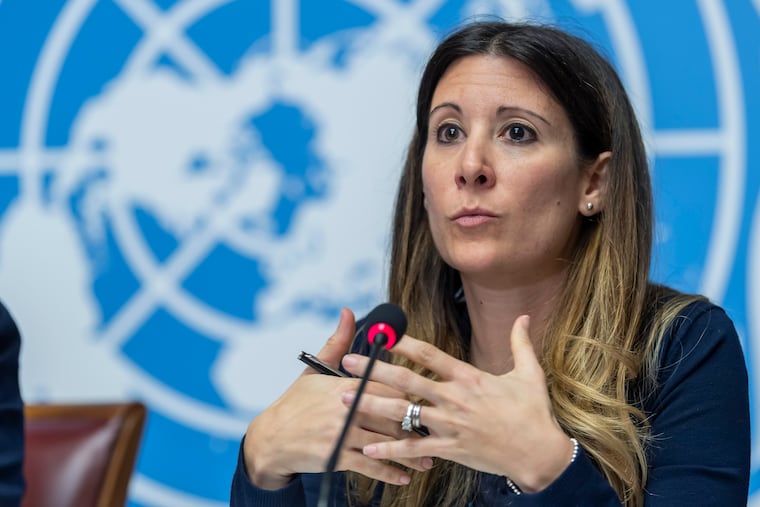Claim that people without COVID-19 symptoms rarely spread virus draws fire for WHO official
Remarks by the WHO epidemiologist appeared to contradict months of research that, in fact, the virus is often spread by those without symptoms.

Thirty minutes into an otherwise routine World Health Organization briefing on Monday, agency epidemiologist Maria Van Kerkhove said “asymptomatic” spread of the coronavirus is “very rare.”
That remark appeared to contradict numerous studies finding that the virus is often spread by those with no symptoms — the very reason it has been so hard to contain. Her statement drew immediate pushback from other public health experts, who warned that it would lead to complacency and relaxed precautions just as the world should be guarding against a second wave of COVID-19.
Andy Slavitt, who ran the Medicare system for part of the Obama administration, tweeted that Van Kerkhove’s remark was “an irresponsible statement even though it was based on legitimate observations.”
Part of the confusion appeared to stem from the definitions of asymptomatic, meaning those who test positive for the virus but never develop symptoms, and presymptomatic, or those who eventually develop symptoms.
Van Kerkhove, who leads a WHO task force on COVID-19, said the never symptomatic are less able to spread the virus than those who have not yet developed symptoms. She cited reports, some unpublished, from countries with robust programs in “contact tracing” — tracking people who are exposed to those who test positive.
But there is no way to tell which is which when you are standing in line at the grocery store. Overwhelmingly, public health experts urge that when in public, people should remain at least six feet apart, wear masks, and wash hands after returning home.
» READ MORE: As Jersey Shore coronavirus cases prove value of contact tracing, post-protest testing in Philly could be scarce
There is “clear evidence” that the virus can be spread by people without symptoms, a trio of physicians from the University of California, San Francisco, wrote in a May editorial in the New England Journal of Medicine. That fact represents the “Achilles heel” of efforts to contain its spread, the authors wrote. If the virus were spread only by people with coughs and fevers, they could be easily identified and told to stay home.
At a follow-up briefing on Tuesday, Van Kerkhove sought to clarify her remarks, saying there had been “misunderstanding.”
“I was responding to a question at the press conference,” she said. “I wasn’t stating a policy of WHO or anything like that. I was just trying to articulate what we know.”
“I used the phrase ‘very rare,’” she added. “I think that’s a misunderstanding, to state that asymptomatic transmission globally is very rare. What I was referring to was a subset of studies.”